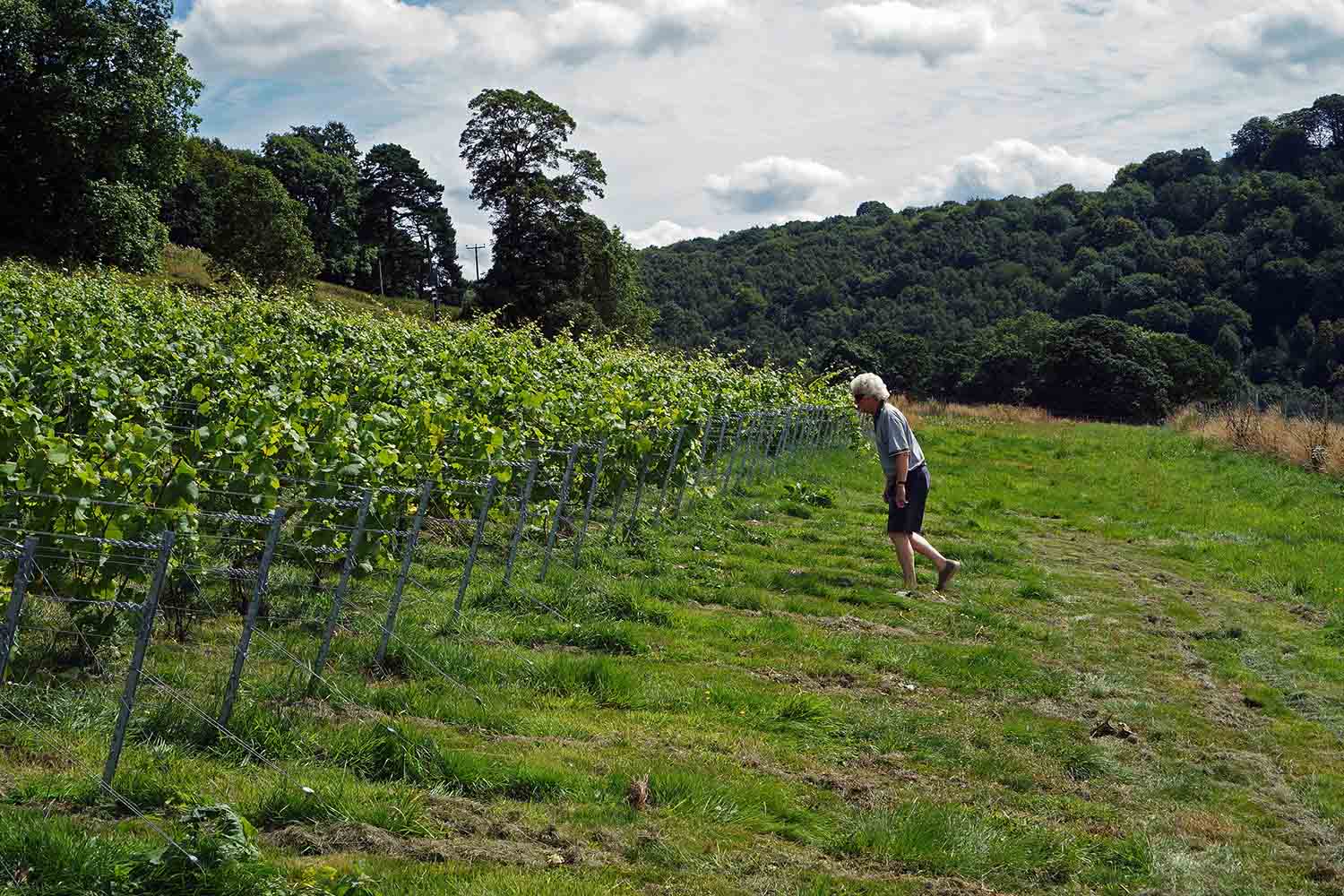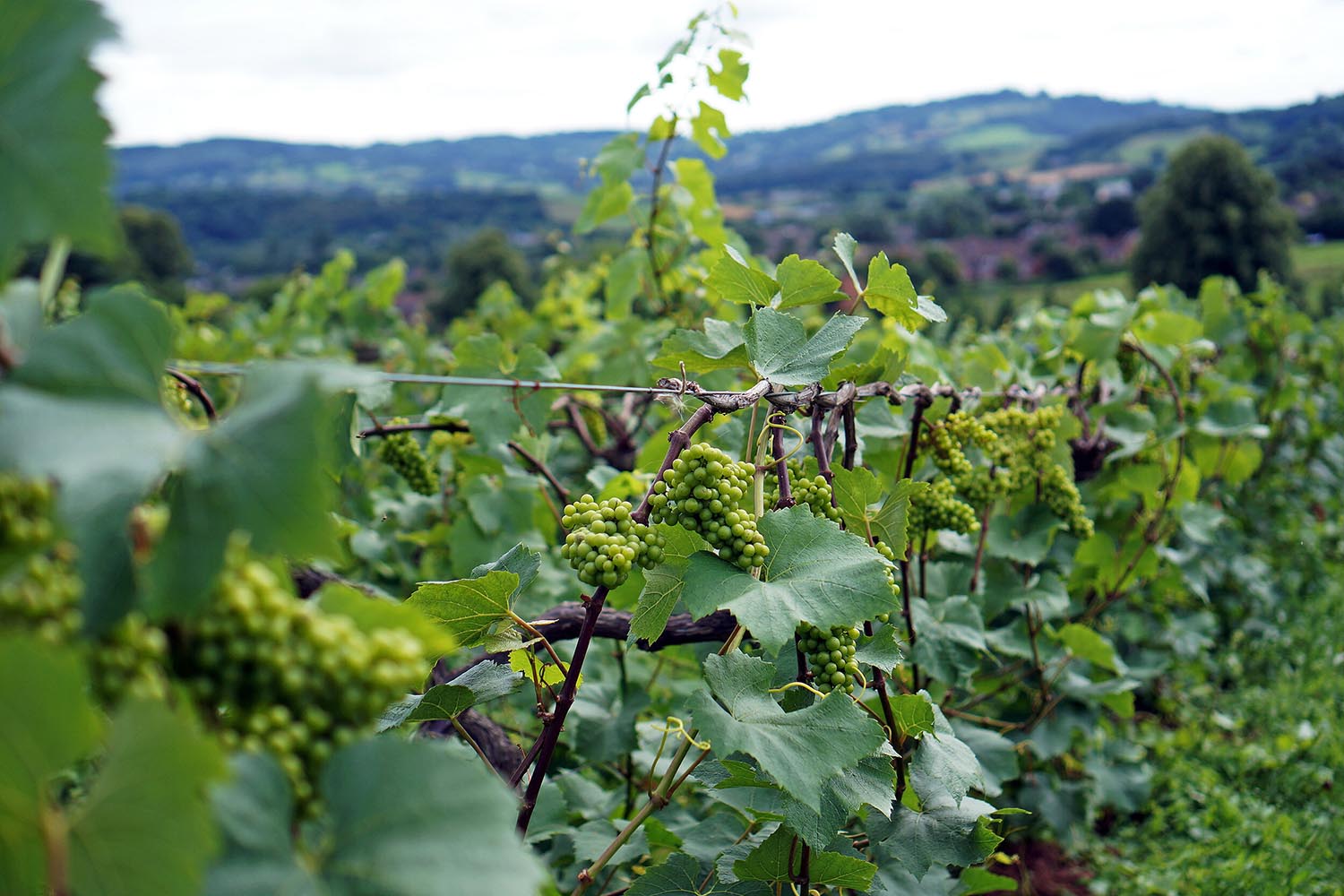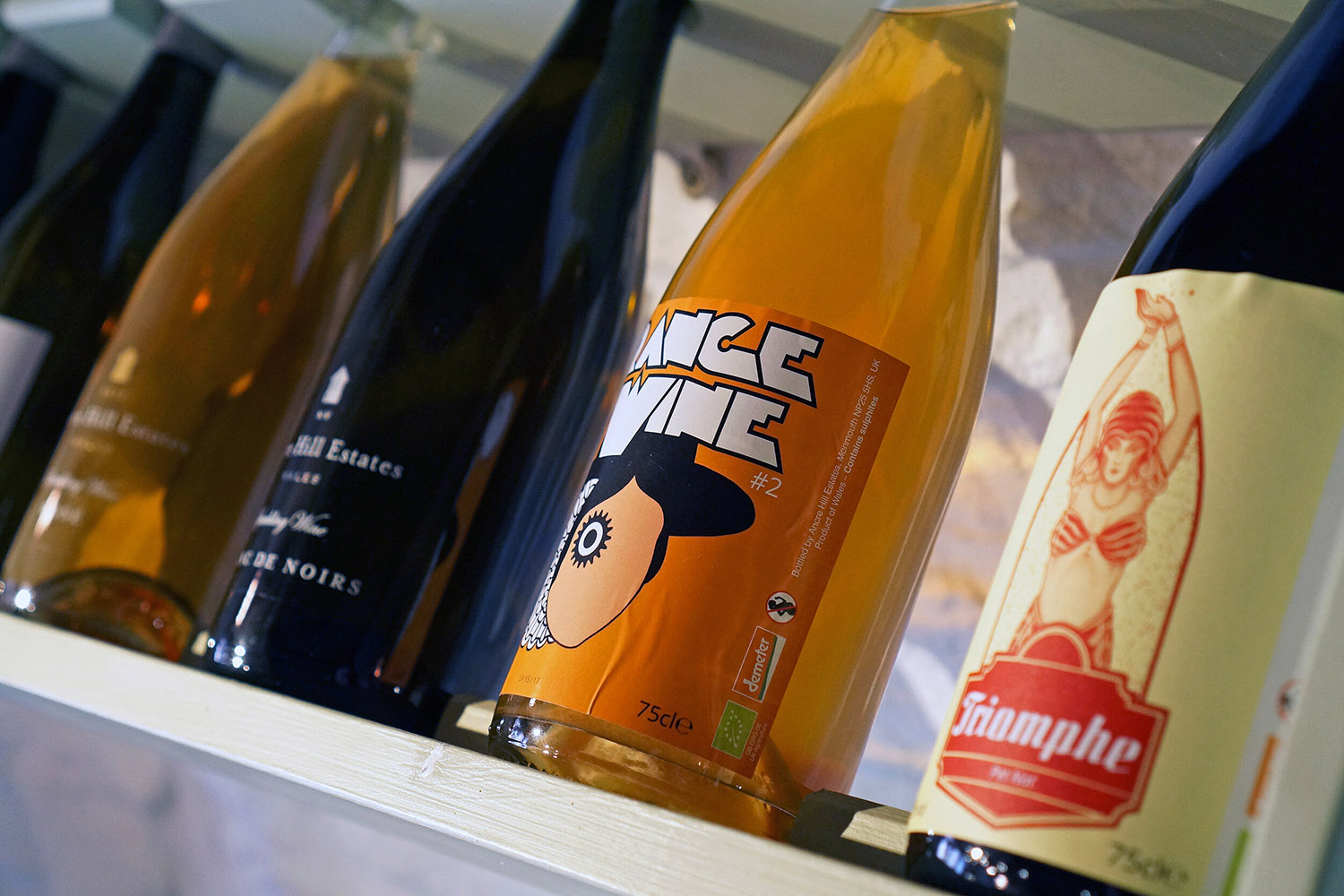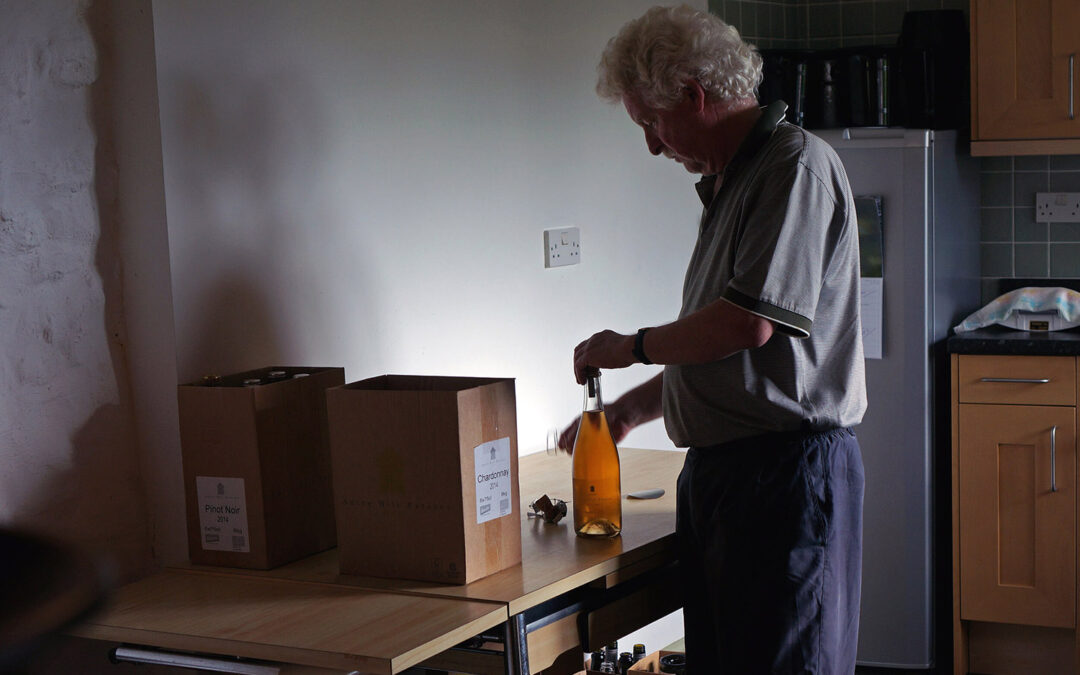The history of Welsh wine is, as you may imagine, brief, with a cyclical timeline of vineyards introduced only to be uprooted under the varying influences of the Roman Empire, Henry VIII, European nobility and the World Wars. The Welsh vineyard scene as we know it today didn’t start until the 1960s, making Wales a particularly new New World region, relatively free from regulations, giving its winemakers freedom to experiment as they please.
Richard initially started this project as a hobby. Conversations with neighbouring vineyard and the help of his wife Joy and their children saw Richard planting five hundred Triomphe vines on the grounds of his home in 2006. Those five hundred vines have now multiplied to some thirty thousand, the original Triomphe is now neighboured with Chardonnay, Pinot Noir, Albariño and a little Pinot Meunier.
To Richard, the environment is of the utmost importance. Almost every process in the winery is conducted with the environment in mind. Natural materials were used over synthetic ones wherever possible with the winery’s walls being constructed from straw bales and a living, green roof, which provides temperature and humidity regulation. Wastewater is treated by a series of ecological pools and plantings which also provide many of the plants and wildflowers used in their biodynamic tea treatments for the vineyard.
The winery has seven concrete tanks, a quartet of concrete eggs and a Stockinger Foudre, as well as an array of barrels and stainless steel tanks. Fermentation is all native yeast and bacteria, with an organic EC1118 yeast used for the second fermentation for the fizz.
The style of their wines continues to evolve, with small-batch fermentation occurring almost entirely in oak barrels and concrete eggs. Not surprisingly, Ancre Hill Estate’s wines are fully Demeter certified.
Check out the range of Ancre Hill Estates wines that we stock from the link below!




